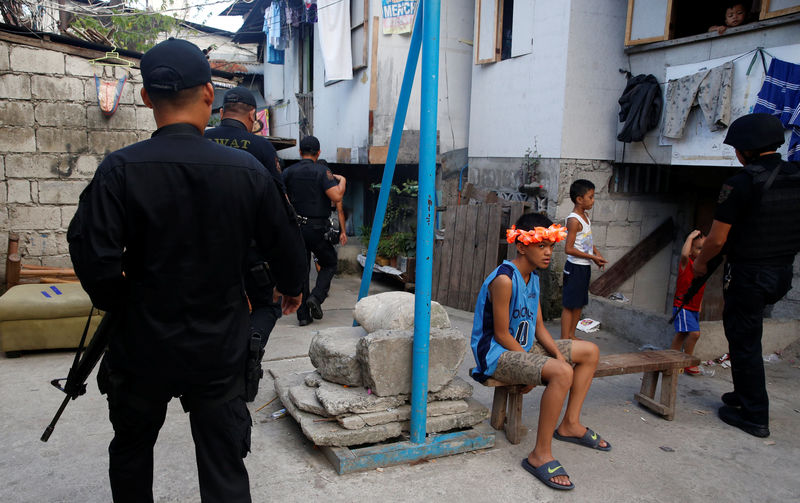WASHINGTON (Reuters) - The United States has shifted millions of dollars in funding for Philippines law enforcement away from police drug control programs, State Department officials said on Monday, since the start of the country's bloody crackdown on drugs this summer.
The Obama administration and human rights groups have criticized Philippines President Rodrigo Duterte's war on drugs, and U.S. officials have said they are "deeply concerned" by reports of extrajudicial killings in the drug campaign. Duterte has in turn rebuked the United States and rejected the criticisms.
Police figures show the campaign has killed more than 2,500 people since Duterte took office on June 30, about three-quarters in police counter-narcotics operations, and the rest believed to be the victims of vigilantes or drug lords eliminating rivals or silencing those who could implicate them.
Since the start of the campaign, U.S. State Department assistance for Philippines law enforcement has been diverted from narcotics control to maritime security and human rights training for the national police, State Department spokesman John Kirby said in a news briefing.
"We decided the prudent thing to do was to refocus the way that assistance was being spent," Kirby said.
Of $5 million that had been intended for Philippines law enforcement efforts, the State Department in early September shifted $4.5 million into maritime law enforcement, specifically to the Philippines Coast Guard and Bureau of Fisheries, a State Department spokeswoman said. Another half-million dollars is to go to human rights and internal reform efforts, she said.
The State Department expects it will continue to focus its funding on maritime security, human rights, and rule of law programming, the spokeswoman said.
The United States has sent the Philippines hundreds of millions of dollars in foreign aid and military and development assistance in recent years, making it the third-largest Asian recipient of U.S. military aid after Afghanistan and Pakistan.
The Leahy Law, named for its sponsor, Democratic Senator Patrick Leahy, bars the United States from providing training or equipment to foreign troops who commit human-rights violations.

Earlier this month, Senate aides told Reuters the United States halted the planned sale of some 26,000 assault rifles to the Philippines' national police after Senator Ben Cardin said he would oppose it, over what aides said were concerns about human rights violations.